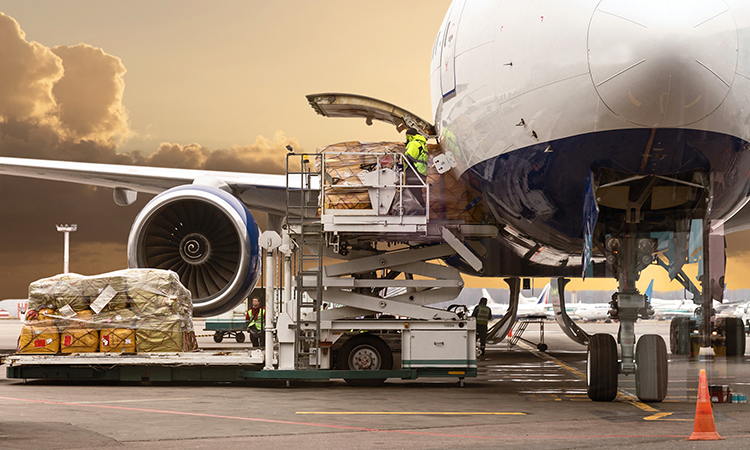Airport communities: A key ingredient for a successful air cargo industry
- Like
- Digg
- Del
- Tumblr
- VKontakte
- Buffer
- Love This
- Odnoklassniki
- Meneame
- Blogger
- Amazon
- Yahoo Mail
- Gmail
- AOL
- Newsvine
- HackerNews
- Evernote
- MySpace
- Mail.ru
- Viadeo
- Line
- Comments
- Yummly
- SMS
- Viber
- Telegram
- Subscribe
- Skype
- Facebook Messenger
- Kakao
- LiveJournal
- Yammer
- Edgar
- Fintel
- Mix
- Instapaper
- Copy Link
Posted: 13 May 2021 | Glyn Hughes | No comments yet
Glyn Hughes, Director General of The International Air Cargo Association (TIACA), discusses the key role that the air cargo industry has played during the COVID-19 pandemic, including the continued transportation of the vaccine, and why airport communities are so important in ensuring the efficient and successful function of air cargo.


This new demand caused an increase in requirement for air cargo capacity, which was suffering from a 40 per cent reduction”
As we look back over the past 14 months, the impact of the COVID-19 pandemic can be seen in many aspects of global society. It has influenced how we work, how we interact and how we consume goods, as well as how we deal with our own and each other’s health and safety.
The COVID-19 pandemic generated the ‘COVID economy’, which created consumer demand for personal protective equipment (PPE) products – which were previously restricted for use within hospitals and health facilities – and it generated an even greater acceleration towards e-commerce. This new demand caused an increase in requirement for air cargo capacity, which was suffering from a 40 per cent reduction as the bellies of passenger aircraft lay grounded in the dessert because of an 80 per cent reduction in passenger demand.
New approaches
But the air cargo industry rose to the challenge. Many parked freighter aircraft were brought back into service, planned retirements were deferred and most innovatively of all was the mobilisation of over 2,500 parked passenger aircraft for cargo-only operations. Of those, nearly 250 had their seats removed to enhance the available payload.
The air cargo industry rose to the challenge”
New loading and off-loading processes were required; new intelligence regarding global situations was needed to ensure than an effective operational environment could be established; and new levels of collaboration became the key ingredient which determined success, particularly as national lockdowns created broader challenges that were not experienced previously. Then, new challenges arose as lockdowns were replaced with economic recovery and vaccine distribution.
This is where airport communities really stepped up: bringing together the various supply chain partners to ensure that communication was open and transparent and, therefore, facilitating all parties to focus on the common goal of providing a safe, secure and efficient environment to move air cargo.
The importance of community-based collaboration
But, as we look ahead, will we slip back into the dark old days of each party focusing on their piece of territory alone? We hope not. Community-based collaboration will be needed more than ever as the passenger side of the industry faces several challenging years ahead to resume previous levels of global network connectivity and passenger numbers.
Community-based collaboration will be needed more than ever as the passenger side of the industry faces several challenging years ahead”
This means that air cargo will continue to operate in a capacity challenging environment, with increased volumes of air cargo demand. Especially in the area of special cargo, which brings enhanced requirements for handling quality, facilities and focus on timeliness.
Successful airport communities will be those which can anticipate these enhanced demands and have effective response plans in place. Longer term infrastructure investments in specialised facilities also dictate the need for collaborative and open community dialogue.
COVID-19 vaccine distribution
As we have seen with the first few months of COVID-19 vaccine distribution, those airport communities which already had a demonstrated expertise in the safe and secure movement of such precious cargo have been the first to which this new cargo has been routed.
But, considering that only around 15 per cent of the global population has received a COVID-19 vaccine, there is considerably more urgent vaccine distribution ahead. So, now is the time for all airports and all local communities to prepare.
TIACA worked collaboratively with Pharma.Aero to produce a report for the global air cargo and pharmaceutical industries”
To support this global rollout challenge, The International Air Cargo Association (TIACA) worked collaboratively with Pharma.Aero to produce a report for the global air cargo and pharmaceutical industries, outlining recommended practices and insights for effective COVID-19 vaccine air transportation and handling.
The report reinforces that the focus on 100 per cent quality is critical, as COVID-19 vaccines are of the highest social value and require urgent time- and temperature-sensitive special handling throughout its transport journey.
As the vaccines are being transported across the globe, it is apparent that the challenge of COVID-19 vaccine distribution demands the highest standards of speed, security, reliability and transparency.
Best practice and community success
Airport communities play a critical role in communicating recommended best practices for each stakeholder in the air cargo supply chain when addressing the four major requirements identified above.
Airport communities play a critical role in communicating recommended best practices for each stakeholder in the air cargo supply chain”
The industry is again encouraged to adopt a local air cargo community approach in executing these specific requirements. Digitalisation is also a critical enabler, as real-time, accurate information sharing is an imperative. This will also enable communities to connect with other communities and, thus, creating global networks of trusted partners.
There are some common themes found when analysing the most successful communities. They all were established with clear local air cargo community objectives. They implemented an organised structure based on inclusivity; a true community must have all parties represented. They each focused equally on localised and global challenges to ensure that they could play an effective role in global network development. All recognised that COVID-19 vaccine distribution brought them to the table, but it is the new paradigm for air cargo that will keep them coming back. Each community also identified at the outset that, to truly collaborate successfully, you must have trust amongst partners.
What the future holds
So, looking ahead, we can anticipate the continuing situation of passenger aircraft operating cargo-only operations until global passenger demand results in the resumption of global passenger networks.
Collectively, the air cargo industry played a vital part in the fight against the COVID-19 pandemic, and it will play a vital part in the COVID-19 vaccination challenge, as well as playing a vital part in the subsequent economic resurgence”
Freighter fleets will continue to operate at high levels of utilisation, and combination carriers will continue to focus on maximising cargo revenues to supplement reduced passenger-based incomes.
Cargo demand will continue to rise to support the e-commerce sector, economic reopening, resumption of consumer spending and growth in global economic activity, as well as continued increased demand for pharmaceutical and vaccine products.
Collectively, the air cargo industry played a vital part in the fight against the COVID-19 pandemic, and it will play a vital part in the COVID-19 vaccination challenge, as well as playing a vital part in the subsequent economic resurgence. Air cargo makes things happen.
Glyn Hughes, Director General of The International Air Cargo Association (TIACA), has been involved in the air cargo industry for over 37 years, having started his career with British Caledonian in the UK.
Hughes joined the International Air Transport Association (IATA) in 1991 and became IATA’s Global Head of Cargo in June 2014, where he had the overall responsibility to deliver the agenda agreed by the Cargo Committee to support the air cargo industry.
In February 2021, Hughes joined TIACA as its first Director General, where he will work with the Board to deliver the organisation’s vision for a safe, profitable and united air cargo industry that embraces modern technologies and practices to sustainably and fairly serve trade and social development worldwide. Priority areas include safety, security, digitalisation and innovation.
Hughes is dedicated to developing collaborative relationships and is a firm believer in supporting the next generation of industry leaders and innovators. He spends a large amount of time on outreach programmes with training and other educational establishments.
Related topics
Aeronautical revenue, Air freight and cargo, Aircraft, Airport crisis management, Airside operations, Capacity, COVID-19


















